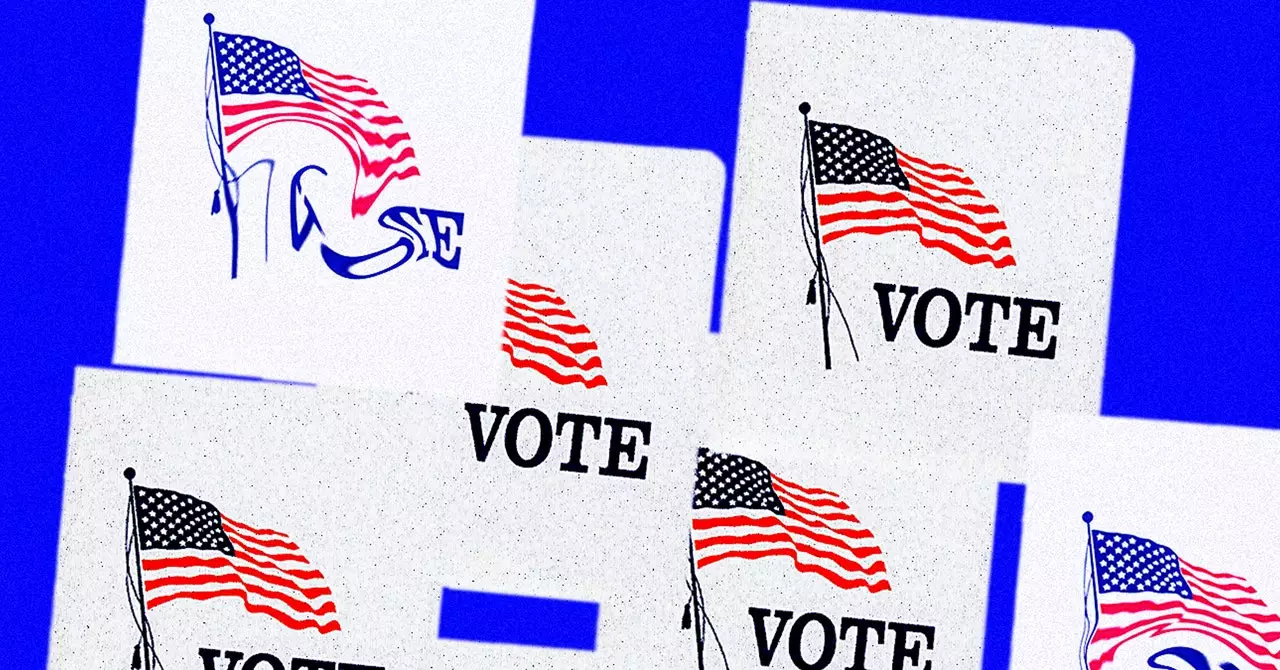When considering the use of AI in political communication, one cannot ignore the potential risks associated with generative AI tools like BattlegroundAI. These tools have a reputation for “hallucinating,” essentially creating content that is not based on any real information. This raises concerns about the accuracy of the political content generated by such technologies. While Hutchinson, the creator of BattlegroundAI, claims that all content is reviewed and approved by humans from campaigns before being disseminated, the fact remains that there is always a possibility of misinformation slipping through the cracks.
The issue of how AI companies train their products on art, writing, and other creative work without obtaining permission has sparked a rising movement of opposition. Critics argue that tools like ChatGPT may infringe on intellectual property rights and ethical boundaries. Hutchinson acknowledges these concerns and emphasizes the need for discussions with Congress and elected officials to address them. She also expresses openness to exploring models that only train on public domain or licensed data to ensure transparency and accountability in AI-generated content.
One of the key debates surrounding the use of AI in political communication is its potential impact on human labor and creativity. While some view AI as a way to streamline tasks and reduce mundane work, others worry about the implications for job security and creative expression. Hutchinson defends BattlegroundAI as a tool that complements human labor rather than replaces it, particularly in environments with limited resources and time constraints. She argues that AI can help alleviate repetitive and draining tasks in advertising, allowing teams to focus on more strategic and impactful initiatives.
Public Trust and Ethical Considerations
As AI becomes increasingly integrated into political communication, questions arise about its impact on public trust and ethical standards. Peter Loge, an expert in political communication ethics, raises concerns about the potential erosion of trust caused by AI-generated content. He warns that the proliferation of fake content generated by AI could further increase public cynicism and skepticism towards political messaging. While transparency and disclosure requirements may mitigate some of these concerns, the broader impact of AI on public perception and trust remains a pressing issue.
Despite the ethical dilemmas and controversies surrounding AI in political communication, Hutchinson remains focused on the immediate benefits of her company’s technology. She emphasizes the importance of providing efficient tools to support overstretched and underfunded campaign teams. Taylor Coots, a political strategist, praises the sophistication of BattlegroundAI and its ability to target specific voter groups effectively. In a landscape where small campaigns face significant challenges and financial constraints, AI-powered tools like BattlegroundAI offer valuable opportunities for efficiency and impactful messaging.
The debate around the use of AI in political communication is multifaceted and complex. While AI technologies like BattlegroundAI have the potential to revolutionize campaign strategies and outreach efforts, they also raise important questions about accuracy, labor displacement, and ethical considerations. As the field continues to evolve, policymakers, researchers, and industry professionals must engage in thoughtful dialogue and collaboration to address these challenges and uphold ethical standards in political communication.

